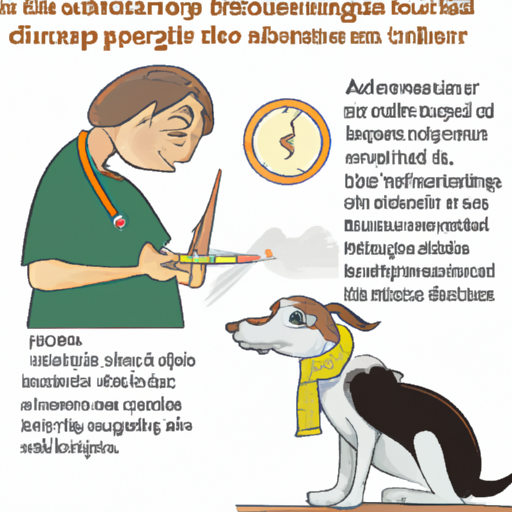Distemper is a serious and highly contagious disease in dogs. The disease is caused by the canine distemper virus (CDV), a relative of the virus that causes measles in humans.
Understanding Distemper: What it is and How it Spreads
Distemper is a viral disease, which affects a wide variety of mammal families, including domestic and wild species of dogs, foxes, wolves, and large cats, as well as pinnipeds, some primates, and a variety of other species. As a caregiver, your beloved pet is at risk, but with the right knowledge, you can take preventive steps.
Distemper spreads through the air and direct contact with an infected animal or object. The virus first attacks a dog’s tonsils and lymph nodes, then the respiratory, urogenital, gastrointestinal, and nervous systems.
Symptoms of Canine Distemper
The first signs of canine distemper include sneezing, coughing and thick mucus coming from the eyes and nose. Fever, lethargy, sudden vomiting, and diarrhea are also common. The virus can also cause the footpads to thicken and harden, leading to its nickname “hardpad disease.”
| Symptoms | Explanation |
|---|---|
| Fever | Usually appears 3 to 6 days after infection. |
| Nasal Discharge | Thick mucus discharge from the nose. |
| Eye Inflammation | Red, watery eyes. |
| Diarrhea | May be sudden and severe. |
| Vomiting | Often accompanies diarrhea. |
| Hardened Pads | The virus can cause the footpads to thicken and harden. |
Diagnosis and Treatment of Distemper
If you believe your dog has distemper, you should see a veterinarian immediately. A physical exam and laboratory tests are usually needed to diagnose distemper. Unfortunately, there is no cure for distemper, and the disease is often fatal. Treatment typically involves supportive care, such as intravenous fluids and antibiotics to prevent secondary infections.
Prevention is Better than Cure
- Vaccination: Vaccination is the key to preventing distemper. Most puppies receive their first vaccination at six to eight weeks of age and a booster shot at 14 to 16 weeks.
- Isolation: If your dog is infected, isolate them from other dogs to prevent the disease from spreading.
- Sanitation: Disinfect your home and your dog’s belongings. The virus does not survive long in the environment, but it can be killed with common disinfectants.
Frequently Asked Questions
Q: Is distemper contagious to humans?
A: No, humans cannot contract canine distemper.
Q: Can my dog get distemper if he’s been vaccinated?
A: Vaccination greatly reduces the risk, but it does not completely eliminate it.
Q: Can distemper be cured?
A: There is no cure for distemper. Treatment involves managing symptoms and preventing secondary infections.
Q: How can I protect my dog from distemper?
A: Vaccination, good hygiene, and avoiding contact with infected animals are the best ways to protect your dog.
So, as you care for your furry friend, remember that being informed is the first step in prevention. And you, dear caregiver, are doing the right thing by seeking out this information.



